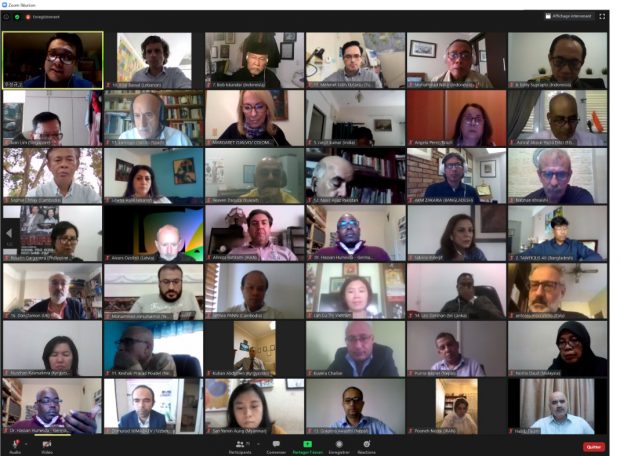
Need to take viral situations much more seriously in the future

By Dr. Hassan Humeida
University of Kiel, Germany
Associate Member of AJA
BERLIN: The World Journalists’ Conference for 2020 took place on September 14-16 2020 in the press center in Seoul, South Korea.
Around 85 journalists from 53 countries took part in this conference. During the three-day event, the participants discussed fake news in the media world, COVID-19 and global responses, and peace effort for the Korean Peninsula as it marked the 70th anniversary of the Korean War.
The World Journalists’ Conference, organized by the Journalists Association of Kores (JAC) and to which the Asia Journalists Association (AJA) contributed enormously, was successful and has exceeded all expectations.
Below is my contribution to the conference on Covid-19 and the Global Responses:
“It has almost been a year since the coronavirus (COVID-19) hit the world with full force. This epidemic first occurred in Wuhan, China. This turned like wildfire into a pandemic across borders.
In the case of corona infection, no distinction was made between strong or weak countries, rich or poor countries.
The response to the corona crisis came from different parts of the world as far as infection control was concerned. But similar were in many ways the long-term effects, whether concerning health, society, economics or politics. This unexpected virus infection led the world to believe that despite many differences, cooperation is vital for all people on earth. Luckily, children, young people and women appear to be spared during this crisis.
The different approaches, whether they are about closing borders, isolation or hygiene measures, vary in intensity from country to country. China declared Wuhan a no-go area early on, South Korea was a pioneer in Covid-19 testing and wearing masks and Germany decided after the South Korean advice to enforce tests and masks. Other countries like Great Britain and the Scandinavian countries followed the principle of herd immunization.
In the fight against corona, virus and infection, the results were very different. The number of sick people in some countries was alarming, especially in Brazil, the United States, Italy and India.
The poor developing countries were also badly affected by the infection and resulting in diverse disease patterns.
It should be mentioned that the pandemic caught these countries asleep, which were rather preoccupied with other worries. It was not possible to build an intact health system for these countries overnight.

The corona will certainly not be the last infection of its kind. The world should be prepared to continue to need each other. Each country should benefit from the other from their innovative systems, for example through the establishment of functioning systems in the field of health and prevention.
These tiny organisms (viruses) are so small that we cannot see them, and yet can bring a planet to a standstill. We all saw that very clearly during this crisis, and we have to take this and similar situations even more seriously in the future.
It is high time to develop effective medication and vaccination which should be made accessible to all people at realistic costs.”


